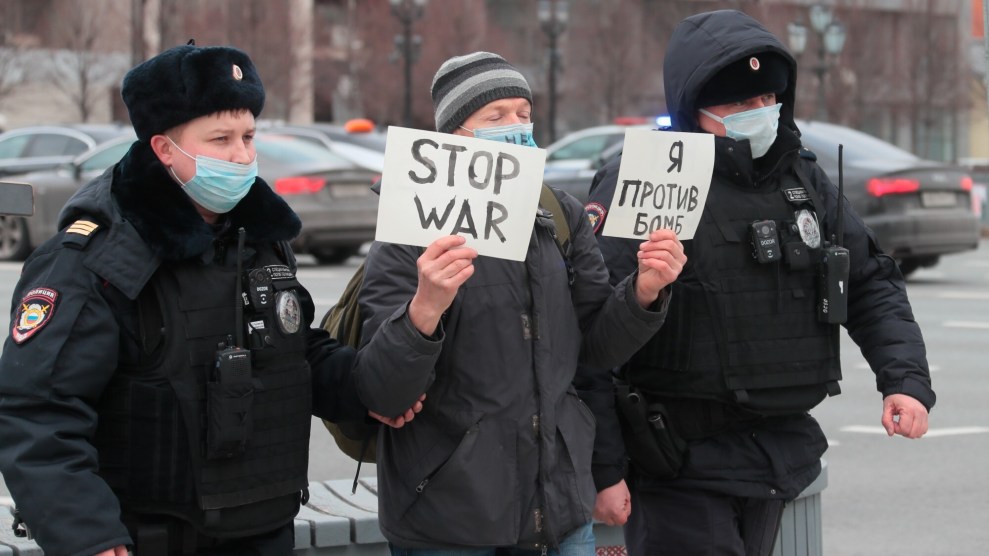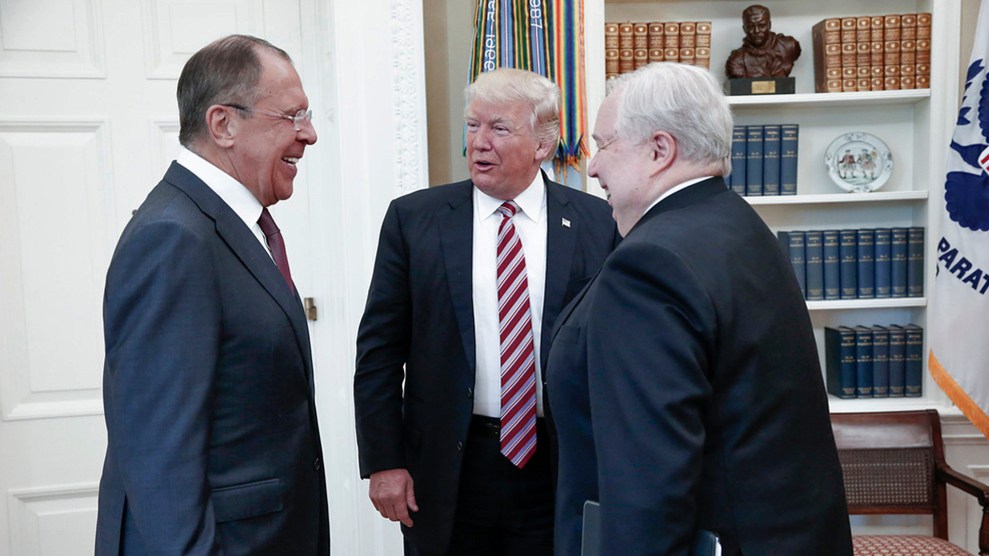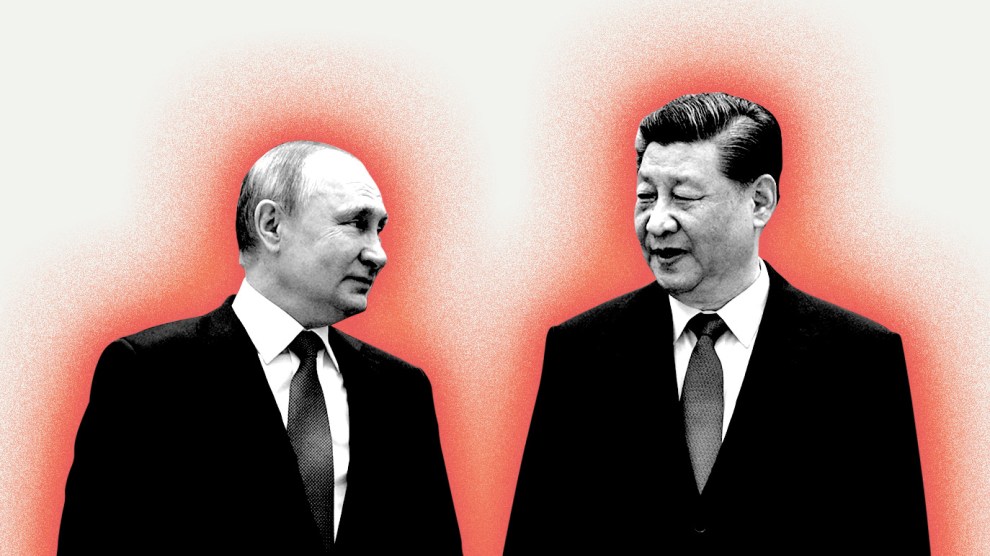
Vitaliy Belousov/Sputnik
Hours after Russian President Vladimir Putin ordered a full-scale military invasion of Ukraine, antiwar protests broke out across Russia.
In the center of Moscow, “dozens” of protesters were arrested, one Russian newspaper reported. Andrew Roth, a journalist for the Guardian, saw one protester, who had held up a sign reading “Fuck war,” being immediately detained:
He was detained within second of holding up that sign. Arrests are getting a lot rougher. pic.twitter.com/UtaaZHKekT
— Andrew Roth (@Andrew__Roth) February 24, 2022
In St. Petersburg, Putin’s hometown, a reporter from the newspaper Novaya Gazeta, a rare independent voice within the Russian press, said nearly 200 protesters were chanting “No to war!” as police shouted them down with a microphone and began detaining people.
Возле Гостиного двора в Петербурге собралось, по оценкам корра «Новой», около двухсот человек. Толпа скандирует «Нет войне!». Полиция в мегафон предупреждает о недопустимости массовых акций в период коронавирусных ограничений. Несколько десятков человек задержаны. Видео: «Новая» pic.twitter.com/lsOkKTWFvd
— Новая Газета (@novaya_gazeta) February 24, 2022
The invasion had been heavily foreshadowed in recent days as the United States and other Western countries cited intelligence that said Putin was planning to invade. But to Russian citizens, the sudden, violent escalation was shocking. Even those supportive of Putin’s two-decade rule were struggling to piece together how this had happened.
As Anton Troianovski, a New York Times reporter in Moscow, put it on Thursday:
On the country’s internet, still mostly uncensored, Russians saw their vaunted military sow carnage in a country in which millions of them had relatives and friends.
Many of them had bought into the Kremlin’s narrative that theirs was a peace-loving country, and Mr. Putin a careful and calculating leader. After all, many Russians still believe, it was Mr. Putin who lifted their country out of the poverty and chaos of the 1990s and made it into a place with a decent standard of living and worthy of international respect.
Nowhere was that cognitive dissonance more clear than in the reaction of Russian elites and celebrities, who broke protocol in their sharp condemnation of the invasion. Max Seddon, the Financial Times’ bureau chief in Moscow, cited several examples:
Maxim Galkin, singer and husband of Alla Pugacheva, Russia’s biggest celebrity:
“I’ve been talking to friends and relatives from Ukraine since early morning! I can’t find the words to say what I feel! How can this be possible! There can be no justification for war! No to war!” pic.twitter.com/Qk7qUcNR9i
— max seddon (@maxseddon) February 24, 2022
The Moscow director of a theater and cultural center had an even blunter reaction. After submitting her resignation on Thursday, Elena Kovalskaya posted to Facebook, “It’s impossible to work for a murderer and collect a salary from him.”
Elena Kovalskaya, the director of Moscow’s Vsevolod Meyerhold State Theater and Cultural Center, has announced her resignation in protest against the invasion of Ukraine. “It’s impossible to work for a murderer and collect a salary from him,” she writes. pic.twitter.com/RhG4wjRww7
— Kevin Rothrock (@KevinRothrock) February 24, 2022
In a speech on Thursday, Putin falsely characterized the Russian military’s actions as a defensive “special military operation” and urged the Russian people to “maintain social cohesion” in the days ahead.
In Moscow and St. Petersburg, and in the few news outlets courageous enough to defy Putin’s censorship regime, the Russian people made clear how they feel about those words.
“The invasion of Ukraine was started on behalf of Russian citizens but against our will,” declared an editorial in Meduza, an independent outlet in Latvia that reports on Russia. “The shame that comes with it will be with us forever.”















